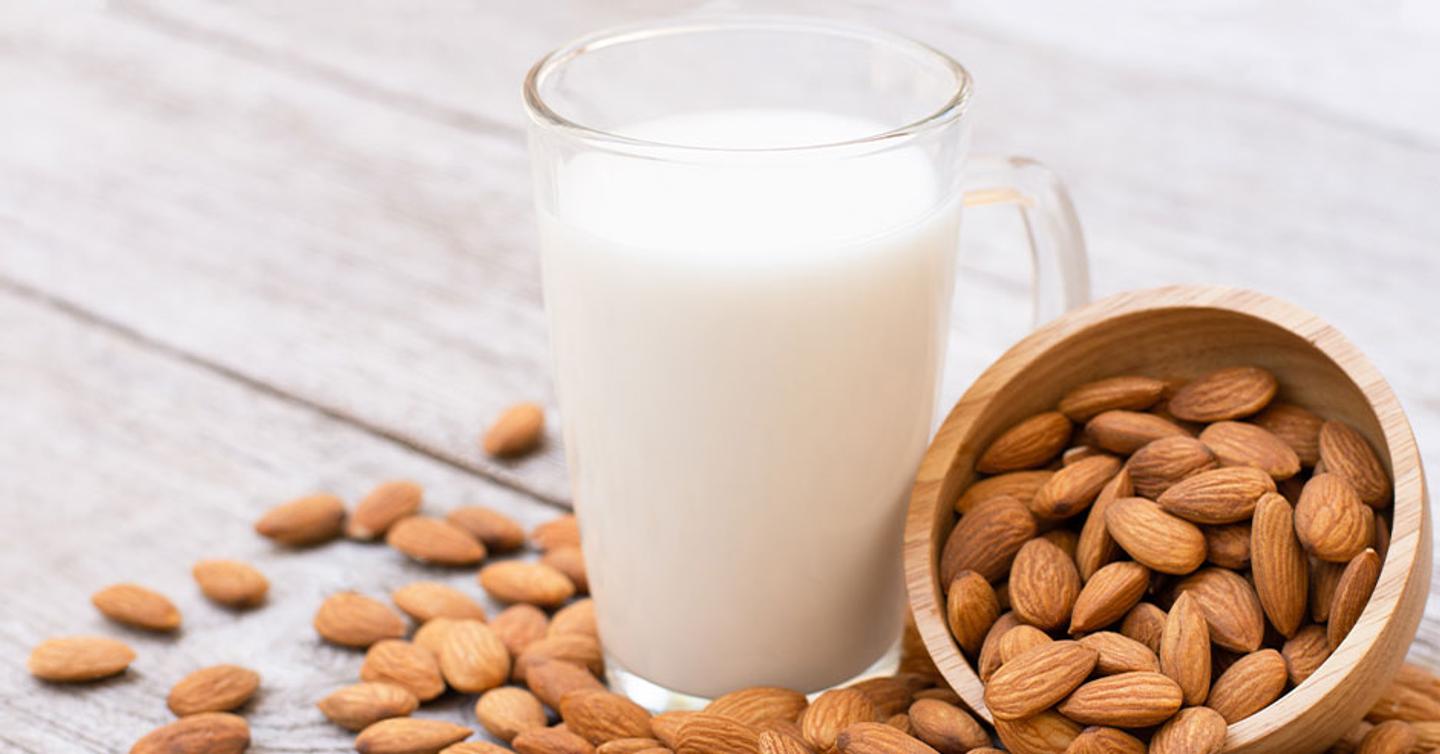
How Does Chocolate Milk Help with Muscle Recovery?
Reading Time: 6 minutes 30 seconds
BY: ISSA
DATE: 2021-12-06
Athletes are continually on the hunt for the perfect post-workout recovery products. There is no shortage of recovery bars, drinks, snacks, and more on the shelves today. But maybe simple is best when it comes to recovery.
What Research Says About Chocolate Milk for Muscle Recovery
Various research has been conducted assessing the use of chocolate milk as a sports recovery drink. In a 2011 study, the effects of low-fat chocolate milk on post-exercise recovery were explored in collegiate soccer athletes. Results showed that consuming low-fat chocolate milk between morning and afternoon training sessions may be as good as consuming the regular sports beverages at promoting recovery.
A study in 2012, measured the effects of consuming chocolate milk immediately after a workout and then again at two hours post-exercise. Results showed that chocolate milk consumption may aid in optimizing exercise recovery and may lessen signs of muscle damage.
Most research on chocolate milk for exercise recovery is not well understood. The mechanisms explaining effectiveness are not entirely clear. Future studies are needed to investigate the mechanism behind whether chocolate milk is an effective recovery beverage following various workout intensities.
Why is Chocolate Milk Good for Recovery?
Sometimes when it comes to what we put in our bodies, simple is best. The further we get from real foods, the more complicated our diets become. No protein powder or pill can perfectly replicate the vitamins and nutrients we get from consuming whole foods.
The purpose of post-workout recovery is two-fold.
Replenish glycogen stores in muscles
Begin the process of muscle rebuilding
Both actions happen simultaneously within the body. Their purpose is to prepare the body for the next workout. Chocolate milk is a potential recovery drink as it offers the perfect combination of carbohydrates and protein with relatively low fat. The carbohydrates in chocolate milk aid in glycogen store replenishment while the protein assists in protein synthesis, aka building muscle.
Elements of Chocolate Milk That Aid Your Muscles After a Workout
Chocolate milk is a relatively inexpensive drink compared to many sports beverages on the market. It has a high water content and helps to replace fluids and electrolytes lost during a workout. Chocolate milk contains key nutrients for overall health.
Protein
Chocolate milk is a complete protein source. This means that it contains all nine of the essential amino acids needed by the body. Milk provides about 8 grams of protein per 8-ounce serving. Protein is critical for proper exercise and muscle recovery.
When your clients perform resistance training, they create small tears in their muscle fibers. These tears are a good thing because where those tears recover, muscle grows and becomes stronger. Protein helps repair damaged muscle tissue and build new muscle.
Leucine
Leucine is an important amino acid involved in building and maintaining strong muscles. Amino acids are the building blocks of proteins. Leucine stimulates the process of muscle protein synthesis following a workout.
Calcium
Calcium is a mineral most often associated with healthy bones. However, calcium also plays an important role in muscle contraction. There are two regulatory proteins associated with muscle contraction: actin and myosin. Calcium triggers an important reaction between these proteins that allow muscles to contract. In the absence of calcium, the interaction between actin and myosin cannot take place, thus hindering normal muscle contraction.
Vitamin D
Vitamin D deficiency is often common in athletes. It is a necessary nutrient that must be obtained from the diet as it cannot be synthesized in the body. Vitamin D is critical for many processes in the body including maintaining optimal muscle function. It plays a critical role through its regulation of calcium transport which is important in triggering muscle contraction. Vitamin D deficiency may also increase protein catabolism or breakdown and decrease the number of type 2 muscle fibers.
Minerals
Zinc plays many important roles within the body. It plays a particularly important role in protein synthesis. Zinc is critical for optimal performance as it prevents early onset of fatigue during workouts. It may also help modulate the stress response following a workout and reduce the oxidative damage on cells.
Selenium is a natural mineral trace element. During a workout, the body produces free radicals due to oxidative stress. Selenium can act as an antioxidant to help defend against free radical damage, promote recovery and enhance overall performance.
Iodine is a trace mineral primarily stored in the thyroid. Hallmarks of iodine deficiency are fatigue and low stamina. It’s important to get healthy sources of iodine as high levels are lost through sweat during exercise.
Magnesium is an essential mineral that plays many roles in the body. In regards to workout performance and recovery, magnesium takes part in energy metabolism and the maintenance of normal muscle function.
B-vitamins are essential in the energy-producing pathways of the body. Active individuals that have low vitamin B status may experience decreased performance ability at high intensities.

Milk Alternatives to Low Fat Chocolate Milk
Due to dietary restrictions and food sensitivities, there are several non-dairy milk products available today.
Almond milk is free of saturated fat and is appealing to calorie-conscious consumers. It is high in vitamin E which acts as an antioxidant.
Soy milk reigns supreme when it comes to delivering on protein. It offers 6-8 grams of protein per serving, similar to cow’s milk.
Cashew milk is usually fortified with a range of nutrients including calcium, vitamin D, vitamin B12, and zinc.
Hemp milk delivers a high level of omega-3 fats. It is also a source of dietary iron, which is absent in cow’s milk. Hemp is never genetically modified, so it is a good option for those needing to avoid common allergens such as nuts, dairy, soy, or gluten.
Coconut milk delivers medium chain fatty acids that may increase metabolism.
Rice milk is hypoallergenic and may be a safe option for those with sensitivities to dairy, nuts, and soy.
There are pros and cons to all forms of milk products. However, it remains a question of how well the body absorbs vitamins and minerals added into dairy-free milk alternatives. Utilizing these whole foods in milk form is not the same as consuming them in their natural state. Dairy-alternative milks do not offer the same carbohydrate and protein ratio as cow’s milk does. Therefore, these milks are okay to include in moderation but don’t drink them with expectations of them being ideal for fitness goals.
What to Look for In Chocolate Milk to Help with Recovery
There is no shortage of chocolate milk brands out there on the shelves today. One thing the best chocolate milks have in common is a low sugar content. Most brands have over half of the carbohydrates coming from added sugars. Encourage your clients to look for chocolate milk that is high in protein content and natural carbohydrates with lower added sugar. It’s not the end of the world to choose a chocolate milk that has added sugar. Just be mindful of the amount and opt for natural sweeteners like organic cane sugar over high fructose corn syrup.
How Does Chocolate Milk Help with Muscle Recovery?
Chocolate milk has displayed some promise in research to be good at promoting exercise recovery. Further research is still needed to explain the mechanisms and effectiveness in greater detail. However, chocolate milk shows promise as a recovery beverage option. It offers an ideal protein to carbohydrate ratio to replenish glycogen stores and promote muscle growth. In addition, it provides several vitamins and nutrients that aid in recovery and set your clients up for success in their next training session.
If your clients are looking for an affordable recovery drink, low-fat chocolate milk may be the way to go. Encourage them to be mindful of the chocolate milk they choose and opt for lower added sugar options. Chocolate milk is not in and of itself a miracle drink. Your clients still need to put in the work. Chocolate milk may simply aid in promoting recovery and set them up for success to put in the work again tomorrow.
Imagine finding a new, rewarding career that you can do on your own time. When you become an ISSA Nutritionist, you’ll gain an understanding of metabolism, muscle development and fat loss, so you can provide clients with direction that gets results. Check out our Nutritionist course.
References
Spaccarotella, Kim J, and Walter D Andzel. 2011. "The Effects Of Low Fat Chocolate Milk On Postexercise Recovery In Collegiate Athletes". Journal Of Strength And Conditioning Research 25 (12): 3456-3460. doi:10.1519/jsc.0b013e3182163071.
Pritchett, Kelly, and Robert Pritchett. 2012. "Chocolate Milk: A Post-Exercise Recovery Beverage For Endurance Sports". Acute Topics In Sport Nutrition, 127-134. doi:10.1159/000341954.
Bartoszewska, Magdalena, Manmohan Kamboj, and Dilip R. Patel. 2010. "Vitamin D, Muscle Function, And Exercise Performance". Pediatric Clinics Of North America 57 (3): 849-861. doi:10.1016/j.pcl.2010.03.008.
Pfeifer, M., B. Begerow, and H. W. Minne. 2002. "Vitamin D And Muscle Function". Osteoporosis International 13 (3): 187-194. doi:10.1007/s001980200012.
Mosekilde, Leif. 2005. "Vitamin D And The Elderly". Clinical Endocrinology 62 (3): 265-281. doi:10.1111/j.1365-2265.2005.02226.x.
Prasad A. S. (1995). Zinc: an overview. Nutrition (Burbank, Los Angeles County, Calif.), 11(1 Suppl), 93–99.
"Iodine Deficiency, Thyroid Function And Sports Performance In Athletes | Kate Smyth Athlete Sanctuary". 2021. Athletesanctuary.Com.Au. https://athletesanctuary.com.au/iodine-deficiency-thyroid-function-sports-performance-in-athletes/.
Zhang, Yijia, Pengcheng Xun, Ru Wang, Lijuan Mao, and Ka He. 2017. "Can Magnesium Enhance Exercise Performance?". Nutrients 9 (9): 946. doi:10.3390/nu9090946.
Woolf, Kathleen, and Melinda M. Manore. 2006. "B-Vitamins And Exercise: Does Exercise Alter Requirements?". International Journal Of Sport Nutrition And Exercise Metabolism 16 (5): 453-484. doi:10.1123/ijsnem.16.5.453.